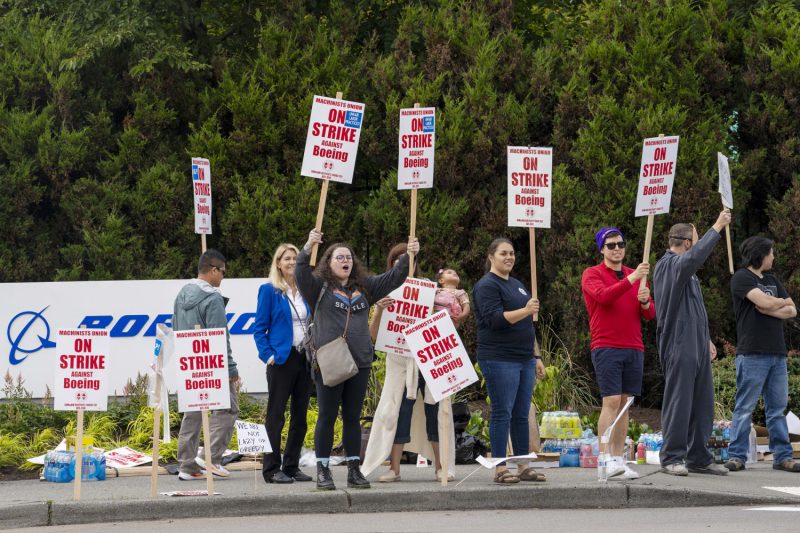Boeing, the world’s largest aerospace company, has announced a hiring freeze and significant cost-cutting measures as it deals with a factory worker strike that has severely affected its operations. This comes at a challenging time for the company, which is already facing mounting financial pressures due to a series of production and safety issues with many of its aircraft models.
The company has decided to halt all non-essential hiring and cut back on other expenditures such as travel, overtime, and contract labor. The hiring freeze reflects the fact that Boeing is grappling with a major labor dispute, with around 27,000 of its factory workers on strike.
The workers, who are members of the International Association of Machinists and Aerospace Workers union, voted to strike over pay, healthcare benefits, and job security concerns. The strike is said to be costing Boeing around $100 million per day in lost productivity.
Boeing’s management has been in negotiations with the union to resolve the dispute, but so far, the two sides have not been able to come to an agreement. Meanwhile, the strike has disrupted Boeing’s production schedules, leading to delays in the delivery of its planes to customers.
This is just the latest problem to hit Boeing, which has been dealing with multiple production problems, lawsuits, and regulatory investigations relating to its 737 MAX jets following two fatal crashes. The global grounding of the 737 MAX has already cost the company billions of dollars and caused significant damage to its reputation.
The hiring freeze and other cost-cutting measures are part of Boeing’s broader efforts to preserve cash and improve its balance sheet as it works to get the 737 MAX back in the air and resolve its labor issues. While these steps are necessary, they are also likely to exacerbate the challenges facing the company, particularly in terms of its ability to attract and retain talent.







